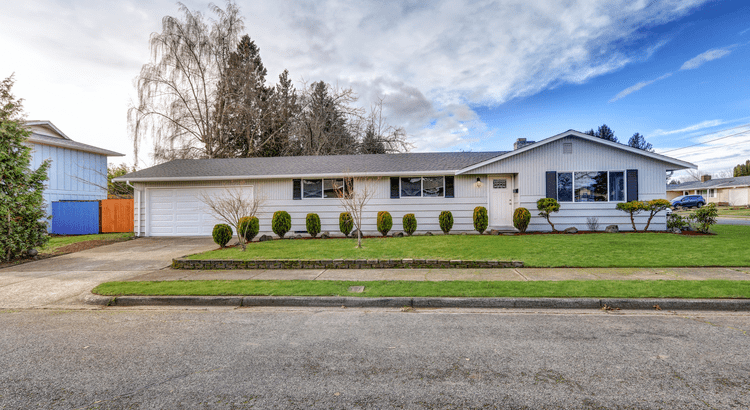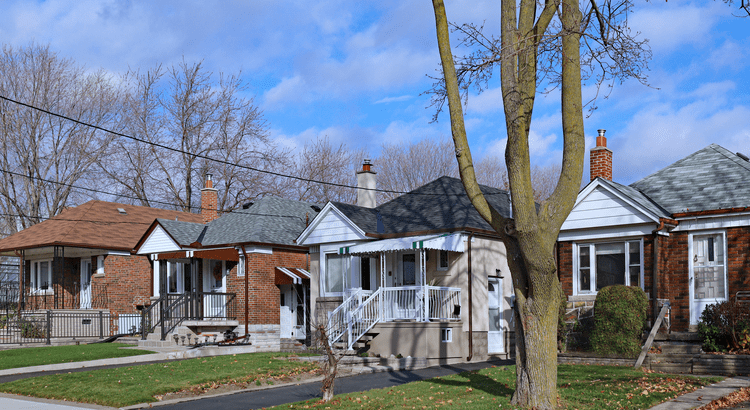Why Overpricing Your House Will Hurt Your Sale: How to Price Right for a Quick Sale

In this article, we’ll dive into why overpricing your home can hurt your chances of a successful sale, the psychology behind buyer behavior, and how to set a price that works for both you and potential buyers. Keep reading for expert insights that can help you get your house off the market fast—at the right price.
The Dangers of Overpricing Your Home
Overpricing a home is one of the most common mistakes sellers make. It might feel like you’re giving yourself room to negotiate, but more often than not, it leads to longer listing times, fewer showings, and ultimately, a lower sale price.
According to Realtor.com, nearly 20% of sellers—that’s one in five—end up reducing their asking price after their homes linger on the market without attracting serious buyers. And that’s definitely not a situation you want to find yourself in.
Let’s break it down.
Why Overpricing Your Home Pushes Buyers Away
In today’s real estate market, buyers are already stretching their budgets. With fluctuating mortgage rates and rising home prices, they're cautious and picky about where they spend their money. When they come across a listing that’s overpriced, they don’t think, “Oh, I can probably negotiate this down.” Instead, they think, “Next!” and move on to the next property.
National Association of Realtors (NAR) puts it simply: “Some sellers are pricing their homes higher than ever just because they can, but this may drive away serious buyers.”
By setting an asking price that’s out of line with the market, you risk losing serious potential buyers who might not even give your house a second look. And remember, fewer showings mean fewer chances to receive offers. So, in essence, pricing too high can backfire in a major way.
The Psychological Effects of an Overpriced Home
Have you ever wondered why people seem more interested in a home that’s priced just right, even if it’s not necessarily the best option? The truth is, pricing isn’t just about numbers; it’s also about psychology.
Here’s a simple analogy: When you go shopping for clothes, a sale item priced at 50% off immediately grabs your attention, right? But if that same item was priced too high, even if it’s "on sale," you might second guess whether it’s worth it. The same concept applies to real estate.
When a house is priced too high, buyers subconsciously start to wonder if something’s wrong with it. Is the seller being unrealistic? Is the home overpriced because of hidden issues? This kind of uncertainty doesn’t help your case. The longer your house stays on the market, the more buyers will question its value and potential.
Homes that Linger Too Long: A Red Flag to Buyers
Here’s the thing—houses that sit on the market for too long start to raise suspicions. It’s like seeing a pair of shoes in a store that’s been on the shelf for months. You start asking yourself, “Why hasn’t anyone bought these yet?” You wonder if the shoes are flawed or out of style.
The same happens in real estate. As time passes, buyers wonder if there’s something wrong with the house. And if you eventually have to drop the price, it often signals that the home was overpriced from the start. This can be a turn-off for buyers who think, “Why has the price been reduced? Is there something wrong with this house?”
At this point, even when you lower the price, you may still face resistance. U.S. News emphasizes: “A home that’s overpriced in the beginning tends to stay on the market longer, even after the price is cut, because buyers think there must be something wrong with it.”
The Right Way to Price Your Home
So, how do you avoid the pitfalls of overpricing and still get the price you want? The key lies in working with a local real estate expert who knows the market inside and out. A real estate agent with experience can help you set a competitive price that aligns with current market conditions, trends, and comparable sales.
But it’s important that you don’t just pick any agent. You need someone who has local knowledge, understands buyer psychology, and is ready to be honest with you about pricing. The last thing you want is an agent who agrees to an unrealistic price just to get your listing. A good agent will use real-time market data, including recent sales in your neighborhood, to suggest a price that’s just right.
Pricing a home isn't about guesswork; it’s about setting the right expectation for both you and potential buyers.
Why You Need to Trust Your Agent’s Expertise
The idea of pricing high and then adjusting later may sound tempting, but it’s not the right approach. A skilled real estate agent will use their market expertise to recommend a price that will attract qualified buyers right from the start. They won’t just agree with the price you set; instead, they’ll use their local insights to suggest a price that makes sense for both you and your market.
Don’t forget—your agent is there to guide you through the selling process, making sure you not only price your home right but also position it to stand out in a competitive market. So, make sure you team up with an agent who’s as committed to your success as you are.
How to Set a Competitive Price
There are several steps you and your agent can take to set a competitive price:
-
Comparative Market Analysis (CMA): Your agent will conduct a CMA to evaluate similar homes in your neighborhood, known as “comps.” This will give you a solid idea of where your home should be priced.
-
Condition and Upgrades: If your home has recently been renovated or has features that set it apart from others, you may be able to price it a little higher. Just make sure the price aligns with the market value of similar homes in your area.
-
Current Market Conditions: The real estate market can fluctuate. Your agent will consider interest rates, buyer demand, and local trends to recommend a price that works right now.
-
Seller’s Motivation: Are you in a rush to sell? If so, your pricing strategy might differ slightly from someone who’s not in a hurry. Your agent will help you balance urgency with a price that’s realistic for the market.
Final Thoughts: Price it Right, Sell It Fast
Bottom line: If your home isn’t priced right, it’s not going to sell. Buyers are smart, and they’re not likely to pay more than what a house is worth, especially when there are plenty of other properties to choose from. Overpricing your house is a surefire way to sit on the market for longer than necessary, ultimately lowering your chances of getting a great offer.
Instead of aiming high and hoping for the best, team up with a knowledgeable local real estate agent who can help you set a price that attracts buyers and helps you achieve the sale you want. With the right pricing strategy, you can sell your house faster, with fewer headaches, and ultimately get the return you deserve.
Ready to Sell? Let's Price Your House Right
Now that you understand the importance of setting the right price, it’s time to take action. Contact a real estate expert today who can help you price your home effectively, market it to the right buyers, and get it sold faster than you thought possible. Remember, the right price makes all the difference—make sure yours is compelling!
Recent Posts










GET MORE INFORMATION
